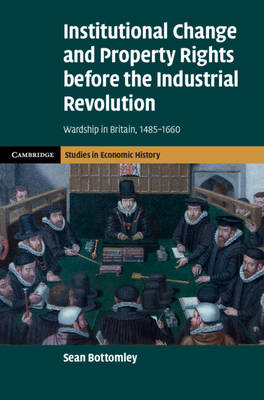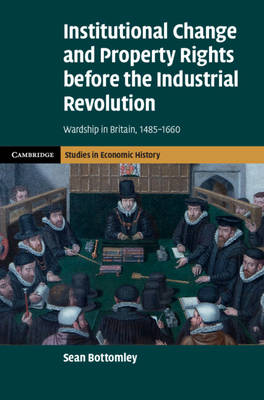
- Afhalen na 1 uur in een winkel met voorraad
- Gratis thuislevering in België vanaf € 30
- Ruim aanbod met 7 miljoen producten
- Afhalen na 1 uur in een winkel met voorraad
- Gratis thuislevering in België vanaf € 30
- Ruim aanbod met 7 miljoen producten
Zoeken
Institutional Change and Property Rights before the Industrial Revolution
Wardship in Britain, 1485–1660
Sean Bottomley
€ 187,45
+ 374 punten
Omschrijving
Secure property rights are widely considered to be an essential prerequisite for sustained economic development; in Britain it is debated whether they have been secure since the medieval period or only established in the mid-seventeenth century. Within this context, Sean Bottomley examines wardship - the Crown's prerogative right(s) to appropriate landed estates which had descended to a legal minor until they attained their majority, to take custody of the child and, where they were unmarried, to decide their marriage partner. Bottomley demonstrates that this constituted a significant yet grossly inefficient and corrupted source of crown revenue, one that inflicted tangible economic penalties. It was also indicative of the decaying capacity of the early Stuart state and Bottomley concludes that without the constitutional changes of the mid to late seventeenth-century, Britain would not have industrialised in the eighteenth-century.
Specificaties
Betrokkenen
- Auteur(s):
- Uitgeverij:
Inhoud
- Aantal bladzijden:
- 272
- Taal:
- Engels
- Reeks:
Eigenschappen
- Productcode (EAN):
- 9781009384353
- Verschijningsdatum:
- 6/11/2025
- Uitvoering:
- Hardcover
- Formaat:
- Genaaid
- Afmetingen:
- 152 mm x 229 mm
- Gewicht:
- 530 g

Alleen bij Standaard Boekhandel
+ 374 punten op je klantenkaart van Standaard Boekhandel
Beoordelingen
We publiceren alleen reviews die voldoen aan de voorwaarden voor reviews. Bekijk onze voorwaarden voor reviews.








